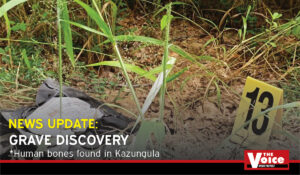In a move that has garnered attention both locally and internationally, Botswana’s Minister of Agriculture, Fidelis Molao, has clarified the government’s stance on the importation of citrus fruits.
Contrary to rumors of an outright ban, Minister Molao emphasized that the current measure is a temporary restriction specifically targeting orange imports.
This restriction, effective from June 17 to August 31, is part of Botswana’s broader strategy to bolster its local agricultural sector and push towards food self-sufficiency.
Businesses in Botswana have been encouraged to source oranges locally, particularly from the Tuli Block region, where orange production is being closely monitored to ensure it meets national demand.
This temporary restriction on oranges comes in addition to existing broader import restrictions on various fresh produce, which are set to remain in place until 2025.
While the move is seen as a positive step towards self-reliance in Botswana, it has sparked concerns in neighboring South Africa.
Critics argue that Botswana’s increasing reliance on import restrictions and bans may strain economic relations between the two countries.
South Africa, a major exporter of citrus fruits, has raised concerns that these restrictions could disrupt its citrus exports to Botswana, which, although a small percentage of South Africa’s total citrus exports, represents a significant market for the region.
The Southern African Customs Union (SACU), of which both Botswana and South Africa are members, permits such restrictions under certain circumstances.
However, observers worry that frequent imposition of these restrictions could undermine the concept of borderless trade within the customs union, introducing instability and uncertainty in trade relations.
Botswana’s recent history with import restrictions offers a mixed outlook. While such measures have previously led to price fluctuations in the country, they have also encouraged the growth of local production.
Minister Molao expressed confidence that in the medium term, local production will stabilize, with Botswana not only meeting its domestic demand but also becoming a reliable exporter.
In 2024, the country exported over 3,500 tonnes of citrus to overseas markets and aims to export 70% of its citrus production in the future.
The vegetable trade between Botswana and South Africa has also been significantly impacted. Since January 2022, Botswana has imposed a ban on vegetable imports, which has been extended until December 2025.
South African farmers, who previously supplied about 80% of Botswana’s fresh produce, have voiced concerns over the loss of this critical market.
However, for Botswana, the ban has been a financial boon, reducing the country’s fresh-produce import bill by 71% and boosting local horticultural production from 74,000 to 88,775 metric tonnes between the 2020/21 and 2023/24 seasons.
Minister Molao defended the government’s position, stating that the restrictions are not targeted at any specific country but are instead aimed at protecting and nurturing Botswana’s emerging agricultural sector.
He pointed out that such initiatives are permissible under SACU laws and are in line with international trade practices, including those of the World Trade Organization (WTO), which allows countries to impose non-tariff barriers on agricultural products to protect their domestic industries.















